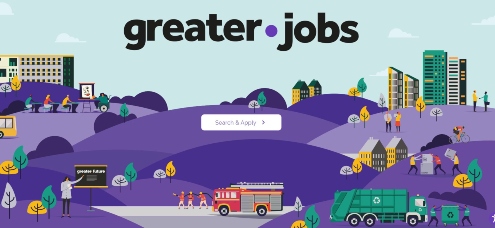How do I start my career in local government?
Fancy kick-starting your career in local government but not sure where to start? Or want to know more about the roles your local government has to offer? This article has all the information you need to make an informed decision and to help make your dreams a reality.


What is Local Government?
Local government is responsible for providing a range of vital services to the people and businesses in defined areas known as authorities, with Greater Manchester having 10 throughout the borough.
Among those services are well known sectors such as social care, schools, housing and waste collection, but local government also has lesser-known services such as licensing, business support, registrar services and pest control – just to name a few!
What are some example jobs within local government?
As you’ve probably guessed, local governments have a wide range of roles available due to the number of services they provide to their local communities.
Each local Council has its own specifications, for example Bolton Council has over 500 different job roles. Some of the roles you’ll know us for are:
- Social Workers
- Planning Officers
- Refuse Loader (Bin man)
- Benefits Officer
But the fantastic thing about local government is that not only do we have common roles like those listed above, but we also have some surprising roles available too including:
- Digital and Content Development Officer
- Graphic Designer
- Community Assessment Officer
- Data, Information and Systems Officer
- Vehicle Maintenance Officer
To learn more about what local government is, and some of the roles within it head to the LGA (Local Government Association) website.
What are the differences between working in local government and the private sector?
Now that you have a better understanding of local government, how does it compare to the private sector?
The private sector refers to any business or organisation that is owned by a private group rather than a government entity like local Councils. Choosing between the two can be difficult as they both offer employees a range of great benefits.
Benefits of private sector
Salary
Private sector organisations can pay their employees a higher rate of pay as they are not restricted by Government set salary bandings.
Profit funded expansion and opportunities
As the private sector are run for profit, they are more likely to take risks in terms of creating new branches, departments or moving into new sectors, creating new opportunities for employees.
Faster recruitment
Although not applicable for all, private sector organisations can make faster decisions about when they hire, what compensation they offer and can make the decision on who to hire easily as they don’t require as much senior level sign off as public sector.
Benefits of public sector (e.g. local government)
A job with meaning
Public sector roles provide employees with a greater sense of purpose. They aren’t run for profit, but to provide their local communities with services that make a real difference.
Flexibility
Organisations in the public sector, where appropriate, are more likely to have hybrid working policies (working from home) in place than their private sector counterparts.
Job security
Public sector roles are stringently watched, meaning they are highly unlikely to go into administration or choose to make mass redundancies. They also provide crucial public services which can’t be stopped, creating job stability.
Development
Due to the size of local Councils and the number of services they provide, they offer employees the unique opportunity to develop and move within the organisation. With similar systems and culture across the public sector, it is easier to move across departments for various opportunities.
What’s clear from the above table is that if you’re interested in a career that gives you security, opportunities to widen your skills and experience, whilst giving something back to your local community then public sector is the way to go!
How to search for and apply for local government jobs
So, you’ve decided that local government is for you. Congratulations! But what happens next?
Local government jobs aren’t typically advertised on Indeed or similar platforms, meaning the best way to apply for them is through dedicated websites such as greater.jobs.
Greater.Jobs supplies a job vacancy platform to all of the local Councils in Greater Manchester and beyond. The site gives you the option the filter by location, job category, working hours and even gives you information about each Council’s departments and the local community they serve.
Each job advert will provide you with an overview of the role including the main duties, the location, and what skills you need for the role. We also supply you with additional documents which contain greater details on staff benefits, the values and behaviours each Council expects their staff to align with and top tips for applications and interviews.
Before you apply, we would always recommend you look at the ‘Job Description’ as this contains a document known as a ‘Person Specification’. This document details exactly what skills and experience the manager expects you to have in order to be the best fit for the role.
Now you’ve taken in all the information on the job advert, you’re ready to apply. The Councils in Greater Manchester have streamlined their application process to make this as easy as possible. You will have to input information about yourself and will need to do one of the following before you submit your application:
- Upload your CV and a covering letter.
- Use the open box to explain how you meet the criteria outlined in the ‘Person Specification’.
- Answer the set of questions detailed on the screen.
Once you’ve successfully submitted your application, we will have our fingers crossed for you whilst the hiring managers come to a decision!

Related

What are digital skills and how do I get them?
[rt_reading_time...

Enjoy gaming? Find out how it could build you a career
[rt_reading_time...
